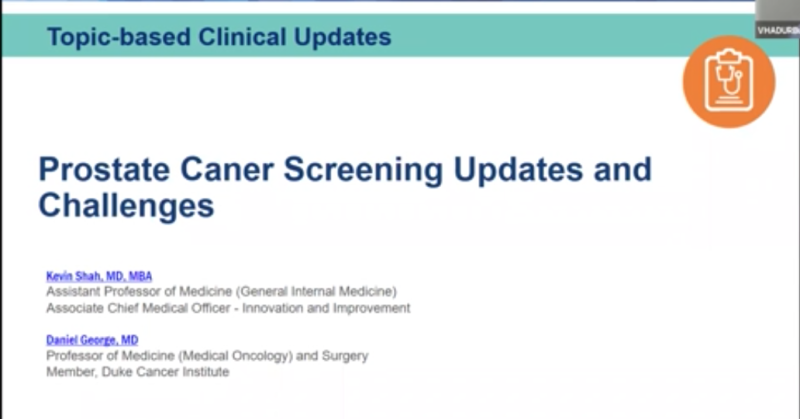
The October 19, 2021, session of Duke Medicine LEADS featured Kevin Shah, MD, MBA, and Daniel George, MD, presenting "Prostate Cancer Screening Updates and Challenges."
- Both prostate cancer diagnosis and associated death varies across NC by county and race.
- African Americans have higher rates of both compared to Caucasians.
- Mortality benefits of PSA screening improve overtime, with an NNT improving from 48 at nine years to 27 at thirteen years.
- Beyond screening, PSA should be conceptualized as a risk predictor as much as race, ethnicity, family history, or exposure. Elevated baseline PSA from age 45-49 predicts higher lifetime rates of metastatic prostate cancer. The highest risk category for this group is a PSA >1.68.
- Implementation of a risk-stratified prostate cancer screening algorithm across Duke Primary Care was successful in creating sustained improvement in age-appropriate patient screening.
- The key to this QI initiative's success was the incorporation of the algorithm into EMR health maintenance and the automatic provision on guidance for next-steps based on PSA results.
- Importantly, increasing adherence to age-appropriate patient screening did not lead to increased PSA testing.
Duke Medicine Learning, Education, and Discussion Series (LEADS) takes place each Tuesday at 12 p.m. Learn more and see schedule of upcoming sessions.